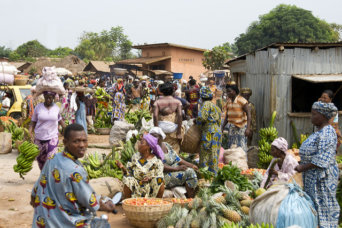- About
- Topics
- Picks
- Audio
- Story
- In-Depth
- Opinion
- News
- Donate
- Signup for our newsletterOur Editors' Best Picks.Send
Read, Debate: Engage.
It was a long fight of six African countries that were threatened with losing access to the European single market. Now they lost the battle. Last week, Namibia, Botswana, Swaziland, South Africa and Lesotho finally signed the controvers Economic Partnership Agreement (EPA).
This agreement replaces the non-reciprocal trade agreements granted by the EU under the Cotonou agreement, signed in June 2000. The aim is to maintain the preferential access to the European market enjoyed by the African, Caribbean and Pacific (ACP) countries, in return for reduced customs duties for European exports.
The main critic by NGOs and African nations is that this agreement is weighted in favour of the EU. It won't help fighting poverty in the poorest countries of the African continent, Additionally, it could come to a loss of customs revenue, coupled with competition from European products arriving on less development markets.
Furthermore, EPA excludes North African states and potentially creates a split between North African and sub-Saharan African countries.
In times, when millions flee from wars and poverty, deals to the disadvantage of African ecomonies and the support of questionable African dictators won't help to handle migration nor promote a sustainable and fair development in Africa.
